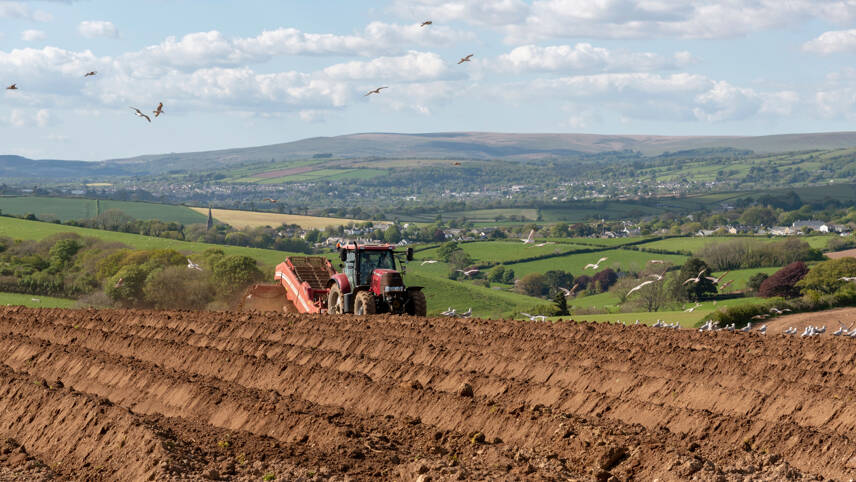Register for free and continue reading
Join our growing army of changemakers and get unlimited access to our premium content

The new research, sponsored by NatWest and published Thursday (4 January), calls for a step change, spurred by policy, to support regenerative food production in England.
The research calls for government intervention to improve data harmonisation for farmers, regulations for high-integrity carbon markets and new policy decisions that connect food, climate and nature in a way that champions regenerative farming.
WWF believes regenerative farming practices – focused on boosting biodiversity and nature – would create a unified response to the “triple challenge” of climate and nature breakdown and worsening food security.
WWF’s executive director of advocacy and campaigns Kate Norgrove said: “Agriculture and land use are at the heart of any action to address climate change and nature loss, but farmers understandably need assurance that they will be fairly rewarded for transitioning to regenerative practices.
“Our food systems are vulnerable to shocks, disruptions and price pressures caused or worsened by climate change and the loss of nature. This report demonstrates how the power of collective action and investment, if underpinned and driven by the Government, can unlock a future for farming that makes both economic and environmental sense.”
The report also states that businesses will need to work collaboratively across the value chain to ensure costs and risks and equally distributed as the transition takes place.
Agriculture ambitions
The Government has committed to leaving nature in a better state for the next generation but, according to its own independent environmental watchdog, is nowhere near on track to deliver this ambition.
The Government has made a commitment to publish a nature-positive investment roadmap for the agricultural sector that would spur wider progress against its nature goals.
Late last year, cross-party think tank Demos, supported by McCain Foods, called on the Government to ramp up approaches to regenerative farming practices, stating that Defra should set up a dedicated Task Force to help improve biodiversity, combat the climate crisis and overcome a looming food shortage risk.
It calls on Defra to significantly increase the Sustainable Farming Incentive (SFI) ‘management payments’ to include an option for additional sums to cover investment costs as they switch to new farming practices. The scheme should be guaranteed for at least seven years to enable those practicing regenerative farming to restore profits without relying on government payments.
Last year, research conducted by FAIRR revealed that the absence of a universally accepted definition for ‘regenerative agriculture‘ and a lack of consensus on the specific objectives that companies aim to achieve through it, poses significant challenges to the food and beverage industry.
Last month, a host of the world’s biggest agri-companies launched a new framework in the hopes of unleashing trillions of dollars in support of regenerative farming practices.
The Sustainable Markets Initiative’s Agribusiness Task Force framework aims to render regenerative farming financially viable and scalable, laying the groundwork for implementation projects in key regions including India, the UK and the US. Supporting businesses include Mars, McCain Foods, McDonald’s, PepsiCo and Waitrose.
Commenting on the new research, NatWest’s head of agriculture Ian Burrow said: “NatWest is proud to have sponsored this report that brings together experts from across the UK food system to explore the actions we can take together to accelerate the transition to regenerative agricultural practices and a resilient food system.
“Agriculture has a huge role to play in developing solutions to meet the UK’s climate and nature goals. We are grateful to farmers for sharing their experience of transitioning their businesses in line with net zero and achieving positive outcomes for nature, and we recognise the unprecedented challenges they face. The roadmap sets out clear actions that the different contributors within the food value chain can take to drive food system change.”


Please login or Register to leave a comment.